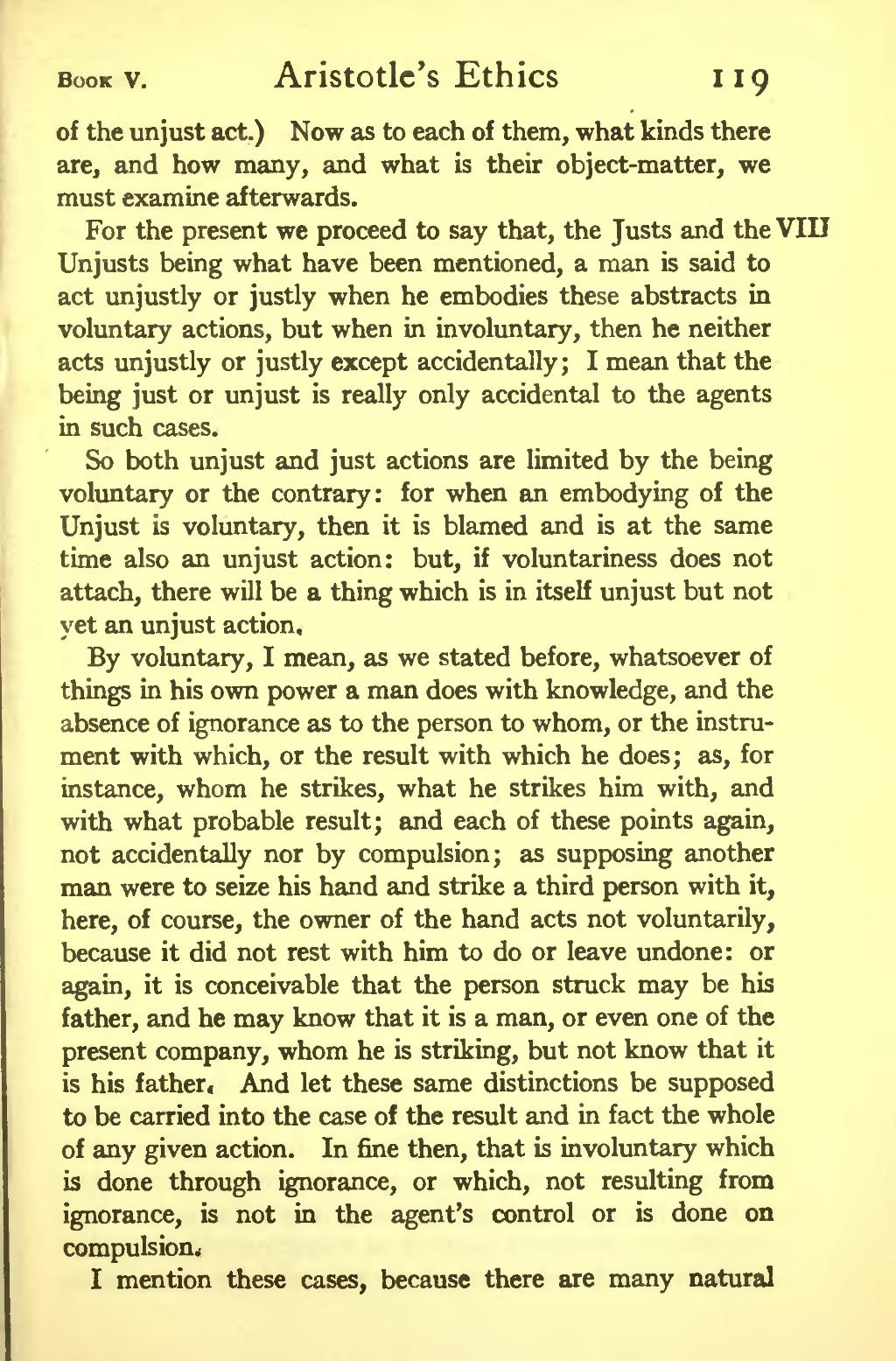of the unjust act.) Now as to each of them, what kinds there are, and how many, and what is their object-matter, we must examine afterwards.
VIII
For the present we proceed to say that, the Justs and the Unjusts being what have been mentioned, a man is said to act unjustly or justly when he embodies these abstracts in voluntary actions, but when in involuntary, then he neither acts unjustly or justly except accidentally; I mean that the being just or unjust is really only accidental to the agents in such cases.
So both unjust and just actions are limited by the being voluntary or the contrary: for when an embodying of the Unjust is voluntary, then it is blamed and is at the same time also an unjust action: but, if voluntariness does not attach, there will be a thing which is in itself unjust but not yet an unjust action.
By voluntary, I mean, as we stated before, whatsoever of things in his own power a man does with knowledge, and the absence of ignorance as to the person to whom, or the instrument with which, or the result with which he does; as, for instance, whom he strikes, what he strikes him with, and with what probable result; and each of these points again, not accidentally nor by compulsion; as supposing another man were to seize his hand and strike a third person with it, here, of course, the owner of the hand acts not voluntarily, because it did not rest with him to do or leave undone: or again, it is conceivable that the person struck may be his father, and he may know that it is a man, or even one of the present company, whom he is striking, but not know that it is his father. And let these same distinctions be supposed to be carried into the case of the result and in fact the whole of any given action. In fine then, that is involuntary which is done through ignorance, or which, not resulting from ignorance, is not in the agent's control or is done on compulsion.
I mention these cases, because there are many natural
